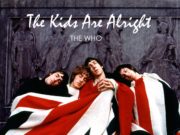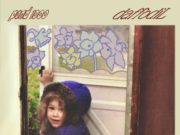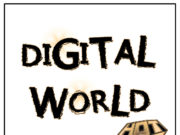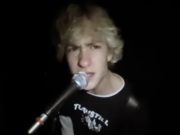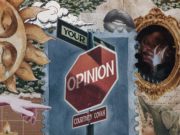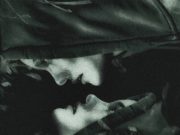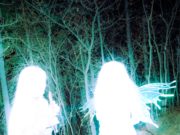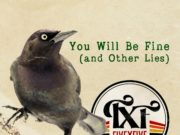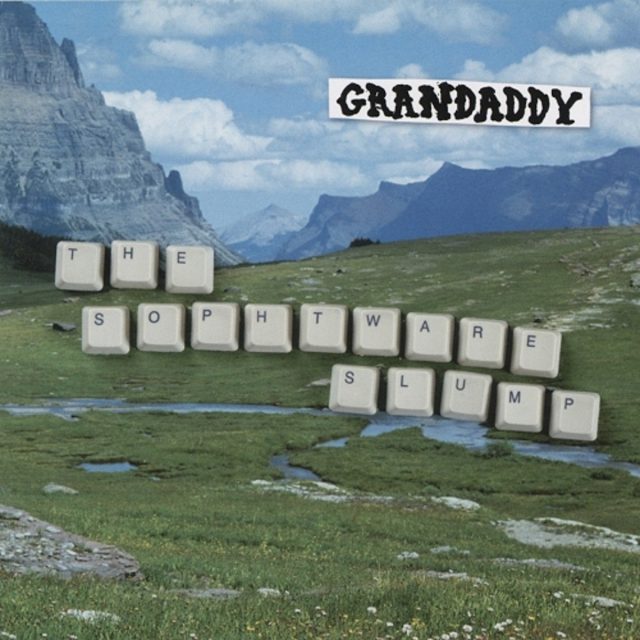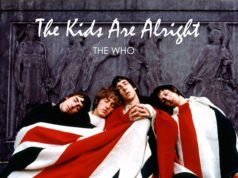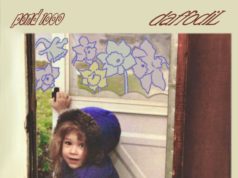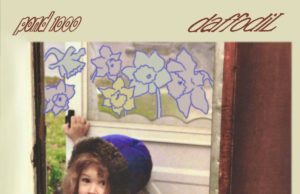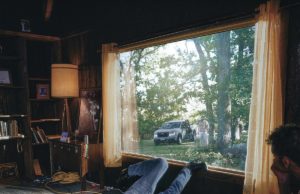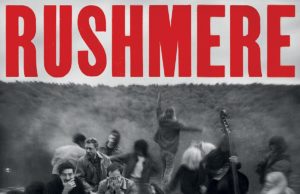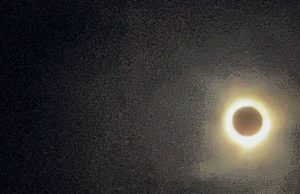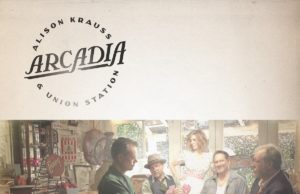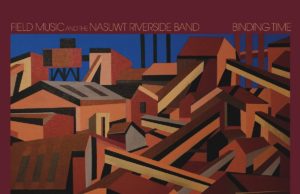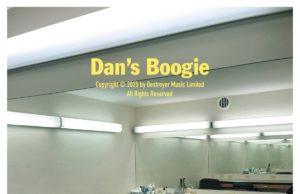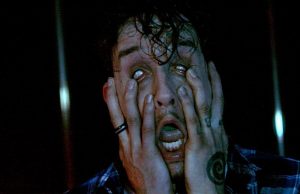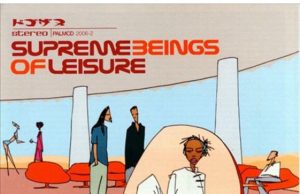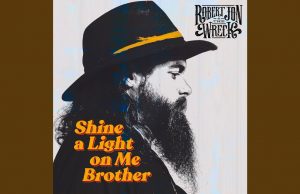 I‘ll never forget the first time I heard He’s Simple, He’s Dumb, He’s The Pilot, the opening song on 2000’s The Sophtware Slump by Grandaddy. It was a summer evening and I was catching up with an old high school buddy who had recently moved back to our hometown, where I was working as a TV reporter. He’d rented a small building which he was using as a recording studio and we had a drink and showed each other the music we were currently listening to. First up from Colin was The Sophtware Slump:
I‘ll never forget the first time I heard He’s Simple, He’s Dumb, He’s The Pilot, the opening song on 2000’s The Sophtware Slump by Grandaddy. It was a summer evening and I was catching up with an old high school buddy who had recently moved back to our hometown, where I was working as a TV reporter. He’d rented a small building which he was using as a recording studio and we had a drink and showed each other the music we were currently listening to. First up from Colin was The Sophtware Slump:
“You know this?” he asked.
“No. Who’s that?” I replied.
“Oh, man,” he said, and took the CD from my hand and put it on. “This is the shit.”
What an introduction, that first track. Low-fi bits, blossoming into well-produced sections for effect and emotional tug, evocative and unpretentious lyrics which are sung in a light, endearingly fragile voice at times and layers of simple — often repetitive — vintage, dated, domestic economy synth. At first I thought it sounded a bit like Flaming Lips. It’s a song about a doomed solo spaceflight, reminiscent of Space Oddity or Rocket Man:
“Adrift again 2000 man. You lost your maps, you lost the plans.
Did you hear them yell — “Land, damn it, land!”
You say you can’t
Well, I hope you can.”
Evocative is really the word for this song and so many songs on the purposely misspelled sophomore release by the California indie band, centred around singer/songwriter/keyboardist and guitarist Jason Lytle. I just picked up a newly re-released vinyl copy, having never actually owned this album personally — getting by with streaming services and the ripped copy I made back in 2004, courtesy of pal Colin. There are a few versions and releases of it, including a 2011 one with a bonus disc of outtakes and promises of re-recording by Lytle on solo piano. That’s not so much of a stretch, really — Lytle recorded the album all alone in the first place. It was done in a California farmhouse in sweltering heat. He wrote it, performed all the instruments and sang every song, mixed and produced it as well.
The epic (eight-minute) He’s Simple, He’s Dumb, He’s The Pilot is a 5/5 song as far as I’m concerned. A tale of isolation, detachment from authority and establishment, pathos and resilience. And it’s retro futurism, which I love so much it hurts. You know, stuff from the past which was written about an imagined future — the Atom Age, etc. But in this context, it’s all flavoured by sedentary depression and disappointment with the realities of the dot-com, post-Y2K world. Like us, even these new machines get boring, old and useless. What do we do now? Why do anything at all? What is everyone else doing?
The song has three phases — the fragile, narrative opening bit, the more hopeful middle section with full band instrumentation and finally the repetitive, plaintive outro which builds and builds, seemingly drifting away and out of reach:
“Did you love this world
And did this world not love you?
Are you givin’ in 2000 Man?”
It’s one of those songs which prompts an immediate re-listen. When I play it in the car, even now, I restart it several times so I can sing along with parts over and over again. It never loses its poignancy for me. The song always delivers the emotion I crave from it. Every year or so I go through a period of being desperately addicted to it. I wish I’d written it, the way some people wish they’d win the lottery — imagining a world in which this was a personal, defining moment. A triumph.
But He’s Simple… isn’t the only song on the record which is aces. There are five of them. One of those is the more traditional indie pop-rocker which follows, Hewlett’s Daughter. It’s kind of a palate cleanser between the opener and Jed The Humanoid, which is another tragic story about doomed technology. It’s a tender and sad cascading melody, mixed with a simple recurring piano refrain, telling the story of a group of people who created a sentient robot. They eventually lost interest in their creation, Jeddy 3. Left alone, the humanoid drank all their booze. “He fizzled and popped, rattled and knocked and finally just stopped.” The narrator realizes they lost “a friend.”
This is followed by yet another needed palate cleanser, The Crystal Lake — the album’s first and most successful single. It’s rather upbeat, with a catchy refrain even though it tells the story of someone who desperately wanted to get away from the country into the city. Once there he winds up in a small apartment and discovers the urban existence to be pretentious, unfriendly, ugly and even more isolated:
“Should never have left the crystal lake.
For parties full of folks who flake.”
Chartsengrafs ends Side 1, a song about how one’s work should never be treated as life-fulfilling. And, when your work involves charts and graphs, you probably shouldn’t take it home with you and expect there to be sparks. It’s another of those shoegaze rockers which starts off low-fi and gets rockin’.
Flip the record over and be treated to the stunningly beautiful, sparse and sad piano ballad. Underneath The Weeping Willow. The melody is gorgeous and the pacing is very clever — with evocative space and phrasing. Just piano and vocal, with a looped piano tinkle throughout for effect. When it comes to emotionally evocative songs to listen to alone, it’s up there with Whispering Pines by The Band, Passenger Seat by Death Cab For Cutie and Will You Miss Me When I Burn? by Palace Brothers.
Broken Household Appliance National Forest is the most on-the-nose song on the record, considering the established theme. It’s almost like a children’s story about the contrast of finding discarded garbage amidst nature and its friendly animals — set to Weezer-like dry, distorted power chords. The After The Gold Rush paradox.
Then we essentially get Jed The Humanoid Part Two. It’s called Jed’s Other Poem (Beautiful Ground) and I’ve always thought this song should be a few minutes longer. There’s an opportunity for a repeated outro. Listen to it and you’ll see what I mean. Though, the brilliant lyric video makes the most of the unrealized ending.
How to top that? Well, you can’t, really. You’ve heard the best the album has to offer by this point. Lytle seems to acknowledge this by placing an instrumental right after Beautiful Ground — E. Knievel Interlude (The Perils of Keeping It Real).
Then you’ve got another song which is in a similar vein to Broken Household Appliance National Forest — Miner At The Dial-A-View. I believe it’s named after the carousel house now known as The Round House in Wilton, Conn., built by Richard T. Foster to allow him to take in the entire scenic view which was frustratingly beautiful in all directions. The song is chill, but melodic and with full band instrumentation. A deep cut. Using a delay-repeat of the word “dream” over and over, it flows seamlessly into So You’ll Aim Toward The Sky, which wraps the record. This is another one chill one, seemingly about dying. It has Someone Saved My Life Tonight-like “fly away” and “far away” and “far from pain” refrains, which put me in the mind of Edward G. Robinson’s death scene in Soylent Green.
Just like Feeling Yourself Disintegrate by The Flaming Lips, it’s a solid choice for a funeral song. Adrift again.
4/5
• • •
Area Resident is an Ottawa-based journalist, recording artist, music collector and re-seller. Hear (and buy) his music on Bandcamp, email him HERE, follow him on Instagram and check him out on Discogs.



